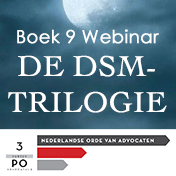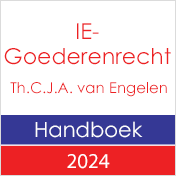Merkenrecht. Beroep tegen de weigering tot inschrijving van woord teken "QD", voor waren en diensten van klasse 9 (televisies, mobiele telefoons, tablets, computers etc.)
Het beroep wordt verworpen. Het woordteken "QD" is beschrijvend. De afkorting kan staan voor verschillende zaken, maar de meest voorkomende, wat blijkt uit verschillende websites waarbij de afkorting daadwerkelijk gebruikt wordt in het werkveld, is “quantum dot”. Quantum dot is een type beeldscherm technologie dat voornamelijk gebruikt wordt bij televisies, monitoren en mobiele apparaten. Het argument dat "QD" ook als afkorting gebruikt kan worden voor andere woorden, moet worden verworpen doordat in ieder geval één andere afkorting (quantum dot) de karakteristiek van de betreffende goederen aanduidt.
"22. First of all, the applicant’s claim that the sources cited by the Board of Appeal are not a reliable source of information is not supported by any evidence or detailed argument. It is sufficient, in that regard, to state that, in the contested decision, the Board of Appeal referred to two online dictionaries specialised in abbreviations and acronyms as well as documents of a commercial nature relating to the goods at issue. Thus, as an example, one of the websites referred to was dedicated to advising consumers on their choice of television set, whereas another was dedicated to the development of information technology. It is indeed apparent from those internet pages that the acronym QD is the abbreviation of the words ‘quantum dot’, which refer to a display technology based on the use of small light emitting crystals and is used, in particular, for television sets, monitors and mobile devices. In addition, the Board of Appeal noted that the sources cited did not contain any indication of any kind of link between them, which the applicant does not contest. In those circumstances, the mere fact that one of the online dictionaries mentioned by the Board of Appeal enables users to add new entries, even if it were established, is not sufficient to challenge the reliability of all the sources referred to by the Board of Appeal.
23. Although reference to certain databases appearing on the internet, such as one of the sources cited by the Board of Appeal, must be made with particular caution, the use of an abbreviation by several operators in the field concerned on the internet can confirm the actual use of the abbreviation in practice. Several sources cited by the Board of Appeal specifically confirm such a use. In any event, the General Court has already held that evidence of the actual use of initials as an abbreviation of the words it relates to is sufficient as long as that evidence lies not only in the definition contained in a dictionary entry but also in documents of a commercial nature (see, to that effect, judgments of 20 July 2004, Lissotschenko and Hentze v OHIM (LIMO), T‑311/02, EU:T:2004:245, paragraph 36, and of 8 September 2016, 69, T‑360/15, not published, EU:T:2016:451, paragraph 23)."



























































